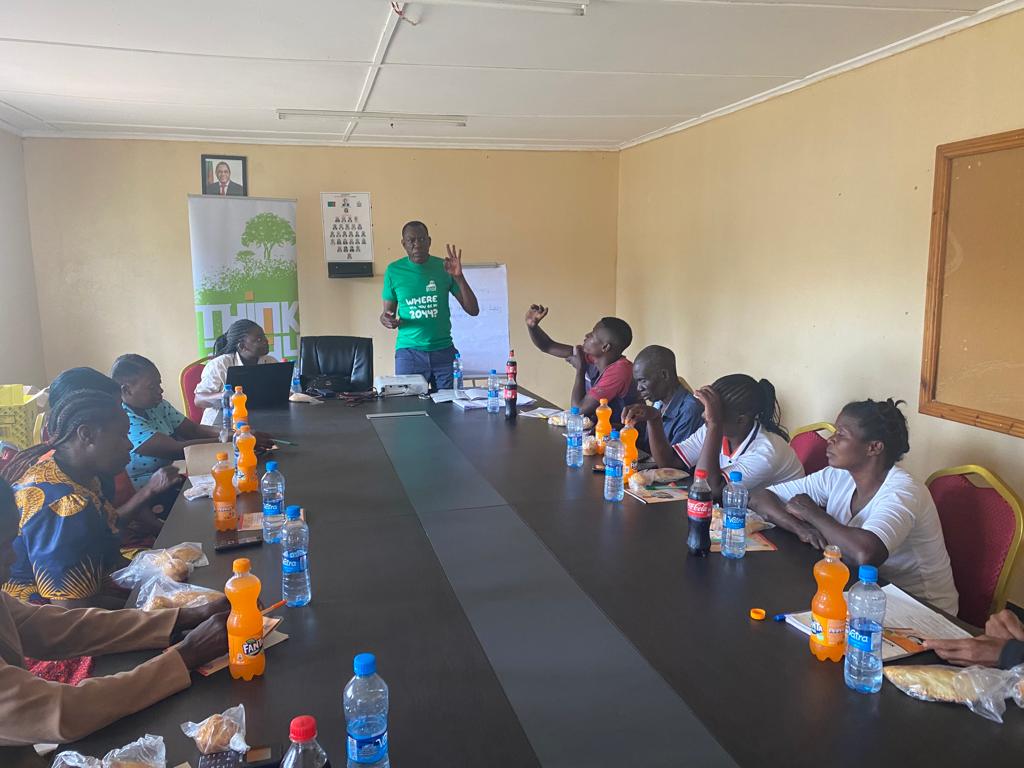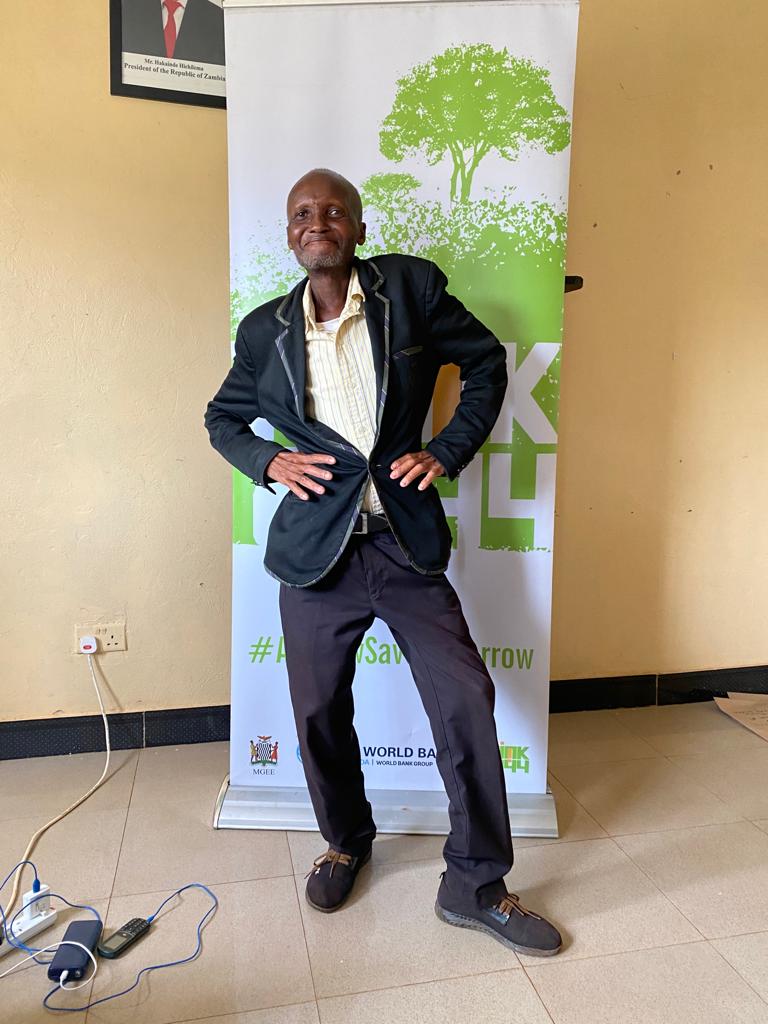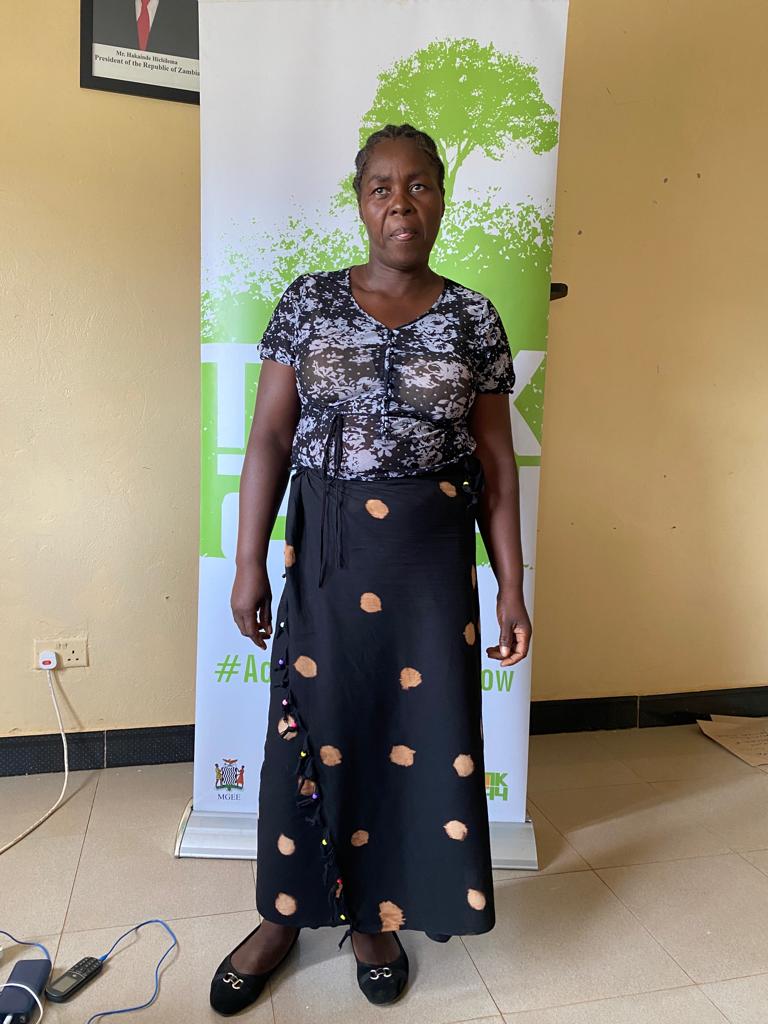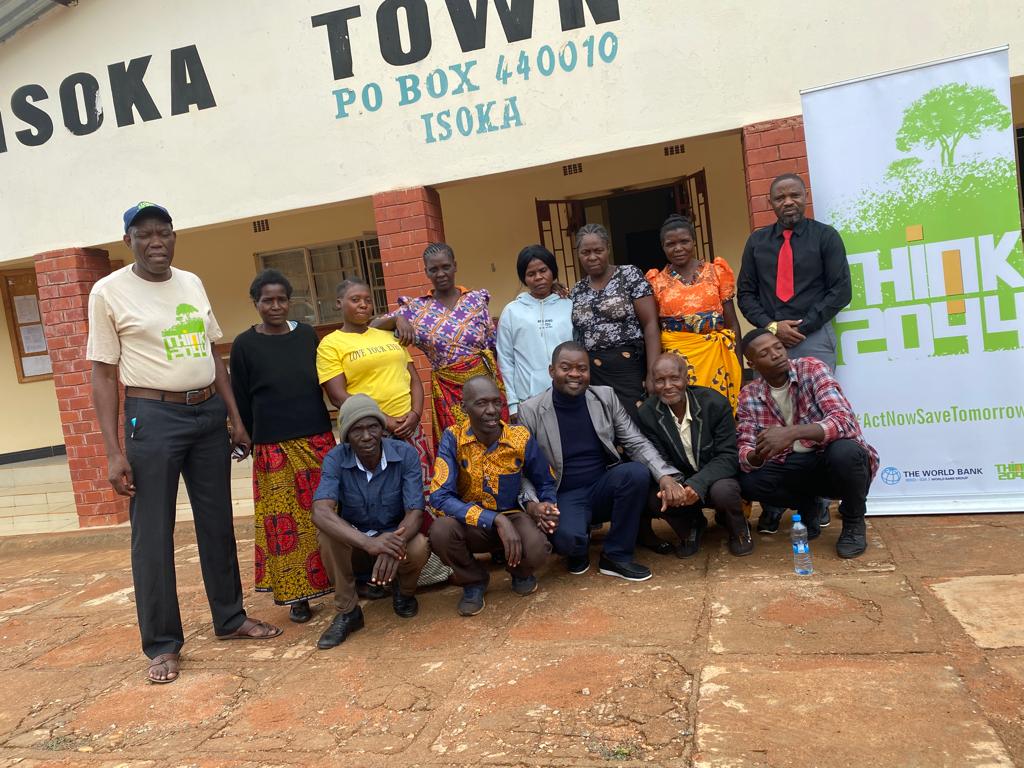MUCHINGA DRAMA GROUP TRAINEES SALUTE TRALARD
Notice: Undefined index: catFilterList in /home/zambi/public_html/wp-content/plugins/wp-likes/api.php on line 243

Trainer Isaac Kalumba
…As they pledge to sensitize local community on climate change
By Rainbow Newspaper Zambia Limited (RNZL) Correspondent in Isoka District, Muchinga Province
THE Muchinga Province drama group trainees have praised the Zambian Government for providing them with information on climate change and sustainable natural resource management through the Transforming Landscapes for Resilience and Development (TRALARD) Project.
The trainees have pledged to use the knowledge they have gained to educate local communities on the causes and effects of climate change, as well as to encourage them to adopt positive practices in relation to climate change adaptation and sustainable natural resource management.
One of the key components of the TRALARD Project is the on-going ‘Think 2044 Behaviour Change Campaign’. This campaign is aimed at triggering a change in behavior among citizens in order for them to adopt positive practices and behavior in relation to climate resilience and sustainable natural resource management.
To reinforce this campaign, the TRALARD project recently conducted a two-day training for local drama groups in the implementation areas. The training was done to equip actors, dancers, poets and other key influencers with the requisite knowledge and skills on climate change and natural resource management so that they can become conveyors of this vital information in their communities.
During the training sessions, the participants (10 from each drama group) were taken through a number of topics including storyline development and presentation, script writing, performance creation, performance presentation and analysis, characterization, costuming as well as staging and direction, based on the TRALARD thematic areas.
The training covered a range of subjects, including the causes and effects of climate change, causes and effects of natural resource degradation and feasible and cheap interventions that communities could embark on to conserve natural resources and adapt to climate change.
The trainees were also provided with an understanding of the importance of sustainable land management practices such as crop rotation, agroforestry and intercropping. They were also taught about the importance of conservation and the role that it plays in ensuring sustainable livelihoods.
The trainees were also given an overview of the different types of alternative livelihoods that were supported in the districts where the TRALARD project is being implemented.
In an interview, Kasoka Theatre Club Secretary John Kaonga, said the club was pleased with the knowledge and skills gained from the training at Isoka Town Council. Mr. Kaonga, 62, expressed satisfaction with the manner the training was conducted and assured the TRALARD team that they would go flat-out to sensitize members of the public in the community using exciting plays.

Kasoka Theatre Club Secretary John Kaonga
He said the theatre club was determined to convey the information in their communities to promote behavioral change and adopt practices that support sustainable natural resource management and tackling the effects of climate change.
“We are very pleased with the knowledge and skills attained in this training and we will go flat-out to sensitize members of the public in our communities about the causes and effects of climate change,” Mr. Kaonga said.
He added that the training has come at the right time as climate change is not just affecting Zambia, but the entire world. He stressed the importance of finding solutions as soon as possible as scientists have predicted that by 2044, the situation will be worse.
Mr.Kaonga also highlighted the need to do away with the Chitemene system, an agricultural method that is known to be destructive to the environment and instead adopt climate smart agriculture.
Another theatre club member, Christine Nampito also praised Government for the training saying it has made her appreciate climate smart agriculture and was determined to use drama to encourage innovation and the use of farming practices such as intercropping in the communities.
Ms. Nampito said she has learnt the importance of crop rotation, adding that cultivating different crops on the same piece of land each season was the sure way of improving the productivity of the soil.

Ms. Christine Nampito
Meanwhile, trainer Isaac Kalumba stressed the need for drama groups who had been trained to create awareness on climate change and natural resource management across the districts to conform to uniformity in their messages to avoid confusing members of the public.
Speaking when he opened a two-day training workshop for drama groups in Isoka and Mafinga Districts, Mr. Kalumba told the participants that the story line (play) should be based on the climate change messages.
This training will help the communities to adopt positive practices and behaviors in relation to resilience and sustainable natural resource management, which will in turn help to overcome the impact of climate change and build resilience to ensure increased food security through alternative livelihoods.
The TRALARD Project, which is being implemented by the Zambian Government with the support of the World Bank Group, aims to improve natural resource management in the Northern Region of Zambia through among other means promoting sustainable diversified livelihoods among communities vulnerable to the adverse impacts of climate change.
It is currently being implemented in 16 selected districts of Luapula, Northern, and Muchinga Provinces. In Muchinga Province, 6 districts, namely, Chama, Lavushimanda, Mpika, Mafinga, Isoka, and Kanchibiya districts are implementing the TRALARD project.

Kasoka Theatre Club



















